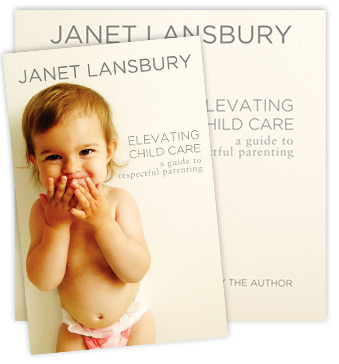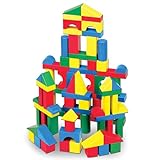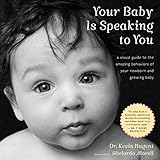Worrying is a by-product of parenting, and our children’s eating habits are a common focus of concern. Are our kids eating enough? And are they eating the right things?
Problems occur when our highly aware young children sense our concerns, because they can be compelled to test and exploit them. Kids always seem to know when they have us over a barrel (or, in this case, a bowl), and the uncomfortable yet tantalizing feeling of power they wield over “the giants” can distract and even unnerve them.
In other words, when our children resist our eating agendas, it isn’t a sign that they’re ungrateful, cruel or manipulative. Rather, it is a reflection of their innate need to test both our leadership and their power. And that means that if we let our anxiety around food consume us (sorry, couldn’t resist), we might actually create the problems we wish to avoid: a child with habits and emotions that interfere with healthy eating. We do this when we believe it our job to get kids to eat and perhaps resort to:
- Coaxing, bribing, rewarding (“Just one more bite… Yum, this is delicious!”)
- Relinquishing behavior boundaries at mealtimes (letting kids stand while they eat, throw or play with food or drinks, or ping-pong back and forth from the table)
- Feeding distracted children (by following them around to give them bites, or using TV or other screens to “get them to eat”)
I recently enjoyed a phone consultation with a lovely mother with concerns about her toddler’s eating. I urged her to consider releasing her agenda by simply being clear about mealtime behavior – basic manners — and letting her child do the rest. She kindly allowed me to share her process:
Hi Janet,
It’s been a week and I wanted to let you know that meal times have been going so much better after talking with you. Sarah happily sits for the entire meal, and meals are shorter (they used to just drag on and on) and much more enjoyable now.
I really can’t believe how quickly it became a non-issue. Seeing us now, I’d never guess that meals used to be such a drama with so many acrobatics and performances going on. Neither of us, least of all Sarah, had to struggle much with the transition. It’s as if that first lunch (minutes after talking with you) — when I explained that standing up would tell me she was all done — took all the wind from the sails. A few meals in she did cry a bit when I followed through and put up her plate (even though she changed her mind), but I think she was just solidifying the new way of doing things for herself.
And she never went hungry! In fact, I almost (and I can’t think of the right word here) “look forward” to her letting me know she is done because I am interested and wanting to know what her body is telling her. So when the cue comes, my attitude is, “Great! We’ll listen to it! Thank you for telling me!” I don’t say all that, but I don’t worry that maybe she got it wrong.
Thanks so much!
~ Julia
Dear Janet,
Hi! It’s been a month or so since we talked about meals with my 21 month old Sarah, and things are still going great. It’s almost humorous to think how I was doing all that (following her around with plate and spoon, feeding dolls, holding food up for her to lap out of my hand like a dog, spotting her so she could stand to eat on her high chair tray etc.). She now she eats just as well (and more, really) without my shenanigans.
I wanted to let you know about an unexpected bonus from our consult; night weaning. You’d mentioned you wondered why food was such an area of control for me, and I’ve been doing some soul searching. I’m pretty sure it has to do with me still feeling horrible after finding out that she was labeled as IUGR when she was born. I was heartbroken by the thought of my baby having needed nourishment from me and me not giving it to her, and so I couldn’t convince myself that she was okay without a feeding or two overnight because I wasn’t trusting myself or my judgement, worrying I’d deprive her again.
I know there are very few 11-month-olds who aren’t able to go all night without a feeding, let alone a 21-month-old. Seeing that the worry came from me and not from her gave me the confidence in both of us that she would be just fine not nursing until morning; in fact, even better for the uninterrupted sleep.
And just like with meal times, she has amazed me. Last night was the second night, and she didn’t struggle at all. When she woke, I told her it was still time to sleep, not time to nurse yet, offered her a sip of water, and she went right back to sleep. The first night there was a mourning period of about half an hour, but it wasn’t the cries of a starving, abandoned child who was being deprived. She chanted, “No, no, no” a few times. Not like, “Mom, I NEEED this,” but more like she was complaining while processing it. I know this was because I was able to be confident for her.
So I just wanted to thank you so much!
~ Julia
Here are some of the mealtime basics I shared with Julia:
- Be clear with your child about your behavior expectations. Let her know ahead of time that you will expect her to sit while she eats and not leave the table until she is done. Eating the food options you’ve offered is totally her choice. She is welcome to have just a bite or two or nothing at all, as she wishes.
- Sit with your child and give her your undivided attention. Make your child’s mealtimes a time of connection and intimacy (and this ideally includes breast or bottle feedings).
- Remind her that if she gets up from the table or plays with food, it will demonstrate to you that she is finished eating and you will put her food away. And follow through.
- Be calm, matter-of-fact and totally non-judgmental while consistently following through with establishing these behavior boundaries. Our clarity and honesty are gifts to our children.
- Acknowledge her feelings and desires. “You want to come back to the table and eat more after you showed me you were done. I see how that upsets you! It will be time to eat again later.”
- Trust your child do the rest. She’s capable of focusing on her meal and autonomously eating all she needs. Believe in her.
Thank you, Julia, for allowing me to share your story ♥
At last! I’ve created the No Bad Kids Master Course to give you all the tools and perspective you need to not only understand and respond effectively to your children’s behavior but also build positive, respectful, relationships with them for life! Check out all the details at nobadkidscourse.com. ♥
(Photo by Donnie Ray Jones on Flickr)















Thank you for this information. I would love to give this a go….. But I have found in the past that if I don’t get involved with helping my 3yr old eat, she won’t eat anything and then will have a really hard time falling asleep and/or ask for food at bedtime AND is guaranteed to wake up at about 2am wanting food. Not sure how to proceed without risking a decent sleep for us both. Hmm….
I understand how challenging it can be to make changes… I think it’s important to recognize that we are the ones that set these behavior cycles in motion. We can also shift them at any time by being clear and trusting but, yes, there may be one difficult day/night of transition. Then it will turn around as it did for Julia.
Hello Janit,
My 15 months girls refuse to eat any kind of solid. She only takes milk 2 times a day. Every times she takes 4-5 oz milk. Her weight is 14.4 pounds.
I’m really worried about her.
Please advise something
A 3 year old has developmentally little concept of time, and limited ability to predict hunger or think ahead about it. While it’s helpful to set the scene for good mealtime habits young, if you’re seeing that your child isn’t capable of the executive functioning skills to think ahead “Bedtime is near, if I don’t eat well now Ill get hungry at night and then will have a rough morning tomorrow”….you are in good company. A child with a small stomach may really need a before bed snack to make it through the night. Metabolisms are different, while many kids “won’t starve”, kids can become underweight if they’re left to manage food intake before they’re ready. One of my kids is a picky eater, preferring raw fruits and veggies to hearty foods. I let her choose this, while noting she was skipping the proteins often…until the pediatrician noted she’d lost a pound an needed to gain about 5 to be healthy. She was 9…and not ready to have the level of food freedom we were giving her! I’m not chasing her with a spoon, but I do have to review the protein thing with her to stay on track until she becomes capable of choosing protein when she’s not really in the mood. This isn’t to say that parents need to hover and chase with food, or give attention for refusing to eat. But if your child needs a lot of guidance in the learning process, you know it. You can offer hearty options as the last food option without hovering and chasing, for example. You can note if for your child, a before bed snack is a must at this age (which may change as a child becomes larger). The goal is to let them make food decisions, but setting the guard rails as a parent is part of the deal. Perhaps taking the food plate for an afternoon snack when the child leaves the table will work, whereas a warning will work better with a before bed snack, for example. Natural consequences of too much freedom aren’t kinder than thoughtful parent consequences that give a child room to make decisions within limitations that keep them healthy
Hi Janet,
Thanks so much for this article. It’s great! I was wondering if you would say the same applies to a 5.5 year old, or if you have a resource for that age that you’d recommend? My son sits at the table with us but he is very picky about what he eats and is getting pickier. I’m not worried about him nutritionally so much as socially–he really sticks to his 5 familiar foods in all situations. I’d like to find a balance between honoring his autonomy and somehow helping him expand his food choices. I was a picky kid who didn’t branch out until my mom totally left me alone (so my 20s). I know this affects my confidence in this area with my son. I don’t really know where to start. Thanks!
Hi Carrie! Yes, I would absolutely trust a 5.5 year old to eat what he chooses of the healthy options you are offering. Sticking to 5 familiar foods (or even less than that) is common. Here’s a perspective you might find helpful… I actually meant to link to this in my post: https://www.janetlansbury.com/2014/03/secrets-to-enjoying-healthy-meals-with-our-children-guest-post-by-helene-skantzikas/
This is really great. I’ve recently been reading books by Ellyn Satter and your advice falls in line with hers. Adults are responsible for the what, when and where of eating, and children are responsible for if and how much. It totally takes the pressure off the parents.
Yes, and we certainly don’t need more pressure! Thanks, Alexis.
Hi Janet,
Thank you – after finding your website and Instagram you’ve been a huge help as I navigate the wild world of parenting!
I think your mealtime advice is great but we are battling dessert and trying to figure out how to incorporate it into this model. Unfortunately we usually do a very small dessert each night – popsicle, whipped cream and fruit…. Not terribly sugar heavy but dessert none the less. What ends up happening is he eats very little dinner and still wants dessert, so we end up usually saying something like “finish your broccoli first” which isn’t in line with your suggestions. Any thoughts are much appreciated! Thank you!
Ellyn does have good advice, and I do believe that as parents we should set boundaries, makes those clear, and provide guidance on the what, when, and where. Our kids should be allowed to determine if and how much. Something else I believe is that we should have conversations with our children about why, and ask for their opinion about what. As with most things, it is easier to start these practices – learning to trust your children (in this case to tell you when they are full) – than it is to change them mid-stream…. but it IS possible to change! Hang in there, and be patient.
I have a similar question. Especially after dinner, if my son doesn’t eat he immediately starts asking for snacks once he leaves the table. Do I allow it or let him go to bed hungry?
Thanks
I would be exceedingly clear with him about the rules/routine and then, yes, let go and trust. That is the only way to give back to our children the clarity and autonomy they need to be able to eat in the healthiest manner. If you wanted to offer a small, healthy snack at bedtime, you could. But it would be best if this idea is yours.
I think I just failed at this. I read the section on your book about eating, told my husband and mother what the new routine was going to be, had the discussion with my daughter and we began. Tonight, sure enough, she was up and walking around. The second time, her food was taken away. However, we had eaten early so she could enjoy popcorn and a movie before bed. There was no popcorn because she did not finish her dinner, but she said she was hungry and asked for her dinner. I gave it to her. I feel like I just took two steps back and we’ve only just begun. I’m finding it difficult to hold my resolve and be confident withholding food until morning.
What about a toddler that eats too much?
One thing to consider might be your approach to your child’s emotions/discomforts/struggles.
My approach meaning how I handle his emotions? Can you explain more. Thank you!!
I would also like to hear more on this topic because we share the same concern: our daughter is very much focused on eating, especially sweets.
Great article! Would this work for a 13 months old or is it too early? I’m not sure what to do when all food ends up on the floor.
Thanks, Mimmi! Now is the perfect time! Kindly disallow throwing the food… Let your child know that throwing or playing with food will tell you he or she is finished. There’s more in this post: https://www.janetlansbury.com/2010/01/baby-table-manners/
Thanks for this article Janet. I do have one question, how can you do this approach for time span of a meal for 3yo’s? We implement your strategies but they are taking 30 to 40 minutes to eat, meaning no time for dessert of yoghurt and banana(they get so excited about it) and cutting into short play time/teeth/books/ bed time that we routinely do after dinner. Would they understand the concept of time yet? Thank you.
Hi – I would like to know how to approach when my son (age 3) or daughter (20 months) ask for seconds. They typically will eat any meat/cheese/bread we offer, and immediately ask for seconds. If we give them seconds, this means the fruit and vegetables that are also on their plate are completely ignored and never eaten. Suggestions?
Hi Laura! My son does the same, and when I spoke a dietician, she told me to say something along the line of “You still have food in your plate. If you are still hungry, eat what is in your plate, and if you are still hungry after that, I will give you more meat/cheese/bread”. She said not to insist, but also to not just allow him to eat huge quantities of 1 item of food.
This is amazing. I can’t wait to share this with my community. This is such a big issue with trauma survivors.
Really? Interesting! I had no idea. Thank you so much for all you do, Elisabeth
Hi Janet I’ve tried to follow your advice with food since my daughter was a baby but am starting to struggle a bit now that she has become a lot pickier and will ignore protein on her plate in favour of carbs and fruit (she’s 3). I’ve found myself getting involved in her eating in a way I haven’t before and saying things that I’m unsure are good things to say. For example if she doesn’t eat her dinner and wants some fruit I’ll say that I can’t give her fruit unless she eats some of her dinner. (I’ll make it clear she doesn’t have to eat anything if she doesn’t want to.) She’ll often eat a small amount of dinner after that but I’m left feeling like I’ve coaxed her into it and am wondering if I should have said something else.
I’ve also noticed that when she’s hurt or upset she’s started asking for food and I’m unsure of the best response to this: I don’t want her consoling herself with food but I also don’t want to tell her she’s not hungry if she thinks she is. I try to talk about why she’s upset but she keeps wailing for food. (I should mention we have both had a new baby and moved house away from her grandparents in the last 4 months!) Thanks 🙂
Hi Janet, thanks for this timely and helpful article. I have a question regarding them changing their mind. When they tell you they’re done by standing or walking away or playing with food and you remove the plate, then they immediately complain and want it back do you ask them to sit down if they’d like to continue eating or do you always stand the ground and follow the acknowledgment of feelings and tell them that it will be time to eat later on?
Many thanks!
I have the same question! Especially at dinner – is there a time frame (like you’ll have another chance to eat half an hour before bedtime). Or is it literally, you’re done and nothing else tonight? And if you had planned dessert for the family but the child didn’t follow dinner rules, do you not allow them to have dessert? Or does the whole family skip dessert? (We have two kids so this becomes especially problematic when one kid eats and stays at the table but the other doesn’t)
I second Laura’s question! My son won’t even give most things on his plate a taste. It’s like they aren’t even there. And then he’ll finish the one thing he recognizes and likes and will ask for more, more, more!
Thanks so much! Great post. I sometimes give my 2.5 year old too much leeway at dinner because he always seems so tired. I have to start trusting that he is in enough control to know when he is hungry, and if he pops up and down from the table, he must be finished! Do you have any thoughts about dessert? My 2.5 year old asks for dessert before he has even sat down to the meal. We usually offer fruit, or a small square of chocolate etc. at the end of the meal (I don’t think we ever intended for it to be a habit, but he liked the idea I guess!) He generally eats a nice diversity of foods, but on nights when he doesn’t like the offering as much he whines about dessert a lot more. I can’t decide whether we should just offer dessert at the same time as the meal (he eats less of the other food then, but “dessert” is usually pretty healthy anyway), get rid of the idea altogether (a little hard now that it’s established as routine), or ask him to wait until the adults are done (which results in a lot of questions/whining that can make the dinner less pleasant). I’d love to hear your thoughts.
Yeah I have a similar question to Eliza. If my son gets up from the table and I take his food away then he hasn’t eaten dinner. So…he’s just hungry later? I could probably deal with that for a few days but I’d rather not!
The only thing I disagree with is discouraging children to play with food. As a parent with a child with an oral aversion, with SPD (she was born at 24 weeks weighing only 14 ounces) that has had many feeding difficulties, we have been through hours and hours of therapy. The most up to date research on this is that children learn about their food by touching and playing- if you have a child hesitant to eat a certain food- the best thing you can do is have them play with it. Telling them not to is only going to create more of a barrier.
I would like to comment on this.
I know a few children with food aversions and I understand that therapists encourage the touch of food. I actually think this fits in quite well with this approach; if you allow a child from an early age to feed themselves they will use the utensil some…but ultimately get dirty and use their hands with moments of exploration of textures. However, there is definitely a clear moment when it turns from less eating to more playing.
Get the washcloth ready!
YES. As a feeding therapist, I agree with everything in the article with exception of avoiding play with food, with boundaries of course. Play is how kids learn. Interacting with foods of different textures in a variety of ways helps children to explore the food and become more comfortable and familiar with it, especially if they have some texture aversions. We need to be okay with touching and interacting with something in addition to/often before putting it in our mouth.
My son is 2 years old and he only wants crackers and baby food(puree) he doesn’t want to eat anything else.
Hi Janet, our biggest meal time challenge is my 2.5 yr old not wanting what we have prepared for dinner and gets very upset when she can’t have bread, crackers, etc. instead. She ends up not eating or eating very little with coaxing, then is hungry a little while later. This happens even when we include her in deciding what to have for dinner and/or her helping us make it. any suggestions?
Hi Janet,
This is awesome practical advice, thank you. At what age should I start implementing it? My son is 7 months old and bangs his spoon on the table but I feel like it is too young to start teaching him table manners. He is just starting to explore hitting spoons on bowls and loves making noise. Do you have advice on this? Should I just wait until he is older?
Ditto to your question Alix. My daughter is nine months and we’ve just recently introduced the low table, and I’m wondering if she’s too young. She continually wants to climb on the table. I calmy tell her I won’t let her and help her to sit down. I can’t help but feel as though I’m restricting her though, which causes my confidence to waver. Is she too young? Or should I stick with it? Ohhhh, also, big question: should the table and meal time be in her yes room? Or should I feed her somewhere else? I don’t like to tell her she can’t do something in the yes room, but it’s the easiest place to put the table… Advice please? Thank you!!! p.s. so glad you got your Facebook page back!
I’m having some anxiety around my 4 year old daughter’s increasing picky eating. I’ve been doing SOME of this but I haven’t been consistent. So… tomorrow is a new day and we will start again. Thanks for your great advice as usual Janet!
I have found this article at just the right time! My nearly 3 year old has started wandering off half way through meals & it’s difficult to get him back without then following him around. Thanks for the advice, looking forward to putting it into practice tomorrow.
Wonderful article, Janet. I had a lot of my own emotional issues tied up with feeding my (now 3.5 years old) son. He’s naturally thin and lithe like me and I’m constantly judged for it. As soon as I said to myself that enough was enough and decided that he would eat or he wouldn’t, there was nothing I could really do (and what I was persisiting in doing, ie. bribing, forcing, bargaining, blah blah BLAH! was undermining my leadership and frittering away our many opportunities for day to day joy) he started eating all the things all the time and fulfilling his natural capapcity for autonomy and ownership and most importantly, listening to his body, which he knows better than anybody. Kids! Our wisest teachers. He naturally still need reminders every now and then about etiquette and my expectations at the dining table (especially when he’s tired after a long day) but I can’t tell you how lovely meal times are as a family and the pleasure I get from him enjoying his food.
Thank you for all that you do. I love popping in here from time to time to enjoy your writing.
Hi Janet, this is a great article as with all your others! I also listen to all your podcasts and so appreciate all the information you consistently provide. I have an 8 month old and have been battling with the right way to work with him when he throws his spoon or food…. I go back and forth between him just starting his food journey and this is him exploring vs this is him already testing boundaries and I should follow the recommendations you have explained above. I feel this way about a lot of your articles and podcasts as a lot of them refer to toddler aged children (which I completely understand why), my question is- do I follow through at this age with setting boundaries like you have explained? I think I already know the answer but would be helpful to get reassurance as a lot of the time I battle with feeling like the boundary setting this young is interfering with them fully experiencing and exploring these new milestones. Thank u!
I am actually having the opposite reaction from my 5 year old son, he is constantly wanting to eat. And although, we eat very healthily I am still very concerned. It has gotten to the point that he sometimes sneaks food, which I know is not a healthy behavior. He isnt overweight but he’s tall and has a little belly. My husband argues with me that we need to portion him but I sometimes think this is worse. What am I supposed to do?! My pediatrician said it’s beyond him, and I haven’t found anyone who felt qualified to help us! Please HELP!
Hi Janet, thank you so much for this. I am at my wits end with my 11 month old. He barely eats. I’ve resorted to letting him crawl around and come to me when he wants another bite, and preparing 5 course meals because he generally only wants 1-2 bites of each food. He frequently won’t even try something. It is a very stressful experience so I’m looking forward to trying your advice. I’m just so worried he’ll go hungry – he’s only a little guy to start with. Is 11 months too early to start this?
I’m wondering how to talk to my 4 year old about where meat comes from. He has been curious recently and has seen a lobster be cooked. We usually frame deaths in terms of Mother Nature. Is there anyway to preserve his innocence/keep the magic in this context? What is the balance between making sure he is ok with his feelings and thoughts about animals dying for us to eat while not burdening a 4 year old?
Hi Jamie. I’m an ethical vegan and my husband is not. Our children (3.5 years and 3 months) are raised vegan until they decide otherwise and we trust them to make this decision (multiple times if necessary) at any age. My 3.5 year old has eaten cheese – once – at a playmate’s birthday party. He enjoyed it at the time but has not asked for it since. He often explores the idea of eating meat or dairy like his dad, through pretend play, mostly. We’ve spoken honestly about why I choose to not eat any animal products and why their dad does. We are honest and trust him with the truth delivered in an age appropriate manner just as we trust him to make his own decisions around it. Some of the things we say and the ways we explain things are:
“Meat is the body of animals”
“Meat comes from animals that are dead/have been killed”
“Some people eat animals and other people do not”
“I/Some people choose to eat animals because _____”
“I/Some people choose not to eat animals because _____”
“Different people around the world have different ideas about which animals are okay to eat and which ones are not”
We also say as little as possible (without being evasive) and let him lead the discussion and ask questions. For example:
“Is that meat?”
“Yes, it is. It’s beef.”
“What animal is it?”
“Beef is the body of a cow.”
“Of a dead cow?”
“Yes, animals are dead when people use their bodies for food.”
“How did the cow die?”
“When animals are eaten, usually a person kills them.”
Usually when the subject becomes more than he wants to hear/know, he stops asking questions. I trust that he has an inner knowing of what is helpful (for understanding and decision making) and what is too much. I think the big issues for parents are two-fold: 1) that we are *clear and truly comfortable* with our dietary practices around this subject and 2) that we are prepared to be supportive and non-judgmental of whatever our child’s decisions are. For me, #2 was more of my challenge because of my own moral understandings – could I really be okay with my child doing something I felt was unethical? And, yes, I have found that I can be, knowing my child needs to come to their own moral and ethical understandings of many things in life, and that their ability and freedom to do so are about me modeling and holding space. For my husband, #1 was more work initially; he had to figure out how he really felt about the suffering and death of animals for meat and diary and eggs. He had to be clear about his reasons he feels okay about eating animals and be able to communicate that in clear and simple terms.
I’m definitely no Janet Lansbury when it comes to parenting, but this particular topic is something I know about because of our omnivore-vegan blended family. I hope some of this helps you to speak with your child and answer his questions, trusting that both you and he can handle it. As Janet would say, “We can do this!”
Dear Janet!
Your books and blogs have helped me through so many difficult times with my toddler and I would like to thank you for that. One thing I was unsuccessful in resolving though are eating habits. My 30 month old son is not very interested in food. I try to get him involved and cook together with him and/or ask him what he would like for lunch (e.g. pasta with vegetable-tomato sauce or vegetable fried rice?). Still, this doesn’t help. He is not eating at all or eats just a few bites. I would be totally fine with him skipping meals or just eating tiny amounts if he wouldn’t become “hangry”.
So for instance, I would sit down with him for lunch and give him some healthy choices, he would eat a few bites (if at all) and tell me he is finished. Ok, no problem. I respect that and lunchtime is finished. Maybe an hour or so later he will get totally irritated and grumpy. So the hunger kicks in… I offer some more lunch to him, he refuses. I offer a snack, he refuses. This usually ends up in a meltdown and me turning on the TV or distracting him otherwise to feed him. Once his blood sugar reaches normal levels again and he is not hungry anymore my happy and cheerful toddler is back. I am absolutely aware that TV is poison for little minds and I hate it, but I don’t know how else to handle this situation. Can I kindly ask for your feedback in this matter? Thanks so much!
Hi Janet,
I admire your advice. It is necessary to trust your child; otherwise, he/she avoid us and skip the meal.
What do you think about parents who make their kids eat foods they don,t care for. That make them eat it all before they leave the table, even if they do not want it. Their ages are 6 and 7 year old boys and they are also on ADHD meds.
Hi Janet,
As always, very sound and useful advice. However I would like to establish the age for starting the ”rules”., because I’m defn not following some of these and am worried now 🙁
My Daughter is 10months old, no teeth yet and she likes to play with the purées that I feed her (this is while she is also eating) Mostly feeling it on her hands, seeing if it’s sticky etc. I don’t stop her as have heard advice to let babies explore their food at this age. When should I stop letting her play with the Food.
Secondly, sometimes before finishing her usual amount she indicates as if she is done (moving her head away, tightly closing the lips etc) I do realise that she seems to be done but when I or DH try some new games or a toy catches her attention, she actually then finishes the remaining food happily. These times I’m actually glad (confused but glad) that I didn’t remove the food because clearly she was still hungry. So this is the conflict between her cues but actions later on.
Sorry for the long post 🙂 And thanks in advance for your very valuable guidance!!!
We did this from the start. We don’t have a table, but all sit together on the couch, no TV or anything, just each other, we all have to stay seated until everyone is finished (on a good night when he eats he takes longer than us anyway), trust him to eat as much as he wants. We now have a 3 year old who will eat dinner maybe once a week, and is now refusing breakfast (he used to have a big breakfast and lunch). And pretty much will only eat sandwiches, fruit and cereal. Any idea where to go from here?
Great article & your advice has helped us so much with our daughter – she loves her meal times & is a greater eater of a variety of foods. On a related subject – I’ve noticed that our daughter (who’s 2yrs & 4months) favours using her fingers over cutlery to eat – I think it’s a genuine love for the food & eagerness to eat. I always leave cutlery out for her & she will use sporadically during the meal/ocassionally not at all. But it’s begining to irk my husband/he will ask her why she is not using them. I still feel it will come in time & by us modeling & I’m just so glad she is a good eater. But is there anything we should be doing to encourage more?
Hi, have you got any articles or advice re. fussy eating (with a 3 year old). I’m a single mum and struggling with my son’s aversion to whole vegetables, potatoes, pieces of meat or fish. Only eats pasta or rice with veg/meat disguised as sauce or mixed in eg. risotto. Fruit ok, and sandwiches and pizza. Getting fed up with preparing two meals twice a day! (And the subsequent washing up).
We do a daily fruit & veg rainbow chart but even that I feel is bribery (I’ve been a bit slack with this at times). In two minds whether I should even be focusing on rewards for just simply eating delicious foods….!
I love cooking, have a great variety and eat most things so I’m confused how this has happened.
Any tips greatly appreciated.
Thank you
Kate
We did this with our first but our second is completely off his curve which was a lowsingle digit to start. Sadly we have to make him gain a few pounds above what he would gain on his own or he’ll need endoscopy, and it’s completely impossible.
Hi Janet! My 21 m.o. son has been low weight and generally uninterested in food since he started eating. One thing I struggle with is that it seems that for him, being removed from the table/putting his food away (when he starts throwing food for instance, which sometimes happens after only 1 bite) actually seems like a reinforcement, because then he “gets to” leave the table and go play/do what he feels like doing. How would you approach a situation like this? Thank you so much!!
Thank you Janet! I am glad I saw this post you have shared. This gives me great reassurance of what my husband and I is doing to our daughter, E. We are doing the same approach to E as you recommended from your book -No bad kids.
However, recently I have been having some difficult conversations with my parents in regards to E’s meal time. During a meal time, my husband took her food away as she left her table, run around the house, then came back,ask for a mouthful of food and run away. After that incidence my parent told me, young kids would not know they gets hungry, you need to feed them very patiently like us, they will learn once they turn 3, kids need to have full 3 meal time a day to grow … I kind of loose my confidence. Most of the time when E stay in my parents house, my mother would feed her while watching TV, allowing her running around, gives her chocolates or biscuits before bed time as she thought she will be hungry during the evening. Now our meal time at home is becoming as serious battle/problem. Therefore, I need to re-read your advice and reassure myself I am doing the correct and the healthy thing to my daughter.
What would you say to teachers in long day care settings that feel the need to encourage children to eat , for example children who are there 5 days a week, 7am-5pm… some are picky and know what they want to eat, what they don’t… others just aren’t big eaters.
We have families that ask us to make sure the children eat, and there are conflicting views and beliefs on what / how much / if a child should eat or not.
Hi Teresa – It’s not possible to make sure a child eats. The best we can do is minimize distractions, have a calm, predictable routine with boundaries around eating behavior (the child must sit, etc.) and then trust children to listen to their tummies. Coaxing, demanding, etc., usually backfires.
Hi! I am totally totally lost regarding mealtimes with my daughter. She’s 3 and her list of safe foods gets shorter by the day. She used to just sit happily at the table but not touch the food, which we were fine with. We trusted her to know what she needed. But, things have got so bad in the last month that she’s now reached a point where she’ll cry if she sees a dinner she doesn’t like. Refuse to come to the table if she sees sauce near her pasta, for example.
We have never praised or encouraged eating and we have tried to be relaxed about not eating and trusting her. But now she’s crying from hunger. She’s saying her belly hurts and she’s hungry… but she won’t eat anything we’ve put on the plate. She just wants her safe foods (which are basically not at all nutritious… plain bread and plain pasta). Do I give these to her?! We sometimes put a small piece of bread on the plate WITH the other food (curry, stew, etc). She’ll eat the bread and ask for more.
I’ve read a lot of your posts but I can’t see advice about if you agree to go off and cook them an entirely new meal?! It feels like that’s potentially a slippery slope… I don’t want to be cooking different meals per day. That sounds exhausting.
I’m so, so lost. Mealtimes are such a drag and my husband and I are starting to really disagree… so now it’s becoming a ‘thing’ which is likely to make the issue worse!!!
Hi! We’ve tried this but then she wants to eat when it’s time for bed- how do you handle that? Thank you!
Hi Janet – I am struggling with 2 aspects of this (1) if he says he is done at dinner time then he is definitely looking for a substantial snack after dinner/before bed. I always gave it to him but now I wonder if that impacts him not wanting dinner bc he knows there is snacks food (which he prefers) later. And (2) he doesn’t like fruit/veggies and he gets very constipated because of that. So I feel like if I put plate down and give him autonomy I know he will get constipated. Do I just go with that? Right now we try to coerce a bit with fruits/veggies help you poop and make it not hard so it’s easier to go. But maybe I have to back off that _ just not sure how ti deal with the resulting constipation. Thoughts?